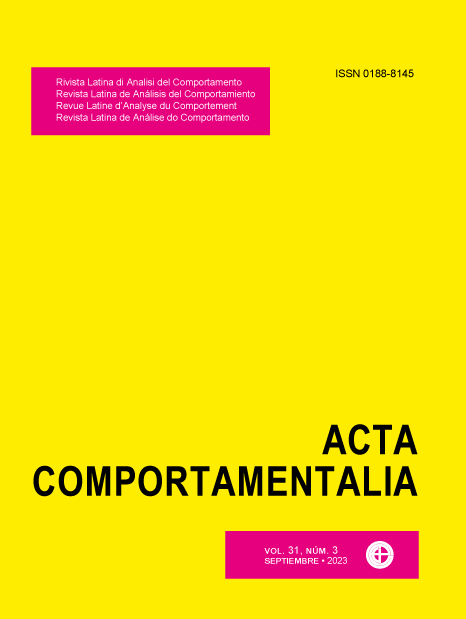Práticas culturais no agronegócio brasileiro sob a ótica da Análise do Comportamento
Contenido principal del artículo
Resumen
A agricultura é uma categoria laboral que permeia a história da humanidade. Contudo, ao passar dos séculos, a relação das pessoas com a agricultura se modificou. Tamanha foi a modernização das práticas agrícolas no Brasil que o termo “agronegócio” emergiu para designar o capitalismo agrário. A maneira como culturas lidam com seus recursos (inclusive alimentícios) é objeto de estudo na área da sustentabilidade. Portanto, é relevante compreender como funciona o modelo de produção agrícola brasileiro e suas consequências. O objetivo deste estudo foi propor uma síntese interpretativa da prática cultural denominada “agronegócio” no Brasil. Para tal, foi realizada uma busca em fevereiro de 2022 na base de dados Scielo Brasil com os seguintes descritores: “Agronegócio” e “Brasil”, e seus equivalentes em inglês. Ao todo 31 artigos foram selecionados. Na consulta à literatura encontrada, o agronegócio foi analisado a partir da contingência de três termos para identificar: a) contextos antecedentes; b) práticas culturais; e c) consequências culturais. Posteriormente, foram descritas as possíveis consequências no curto e longo prazo advindas do agronegócio. Esperamos que as discussões derivadas do presente estudo possam contribuir para o debate da Análise do Comportamento sobre desenvolvimento sustentável, especificamente na área de produção alimentar.
Detalles del artículo
Citas en Dimensions Service

<a rel="license" href="http://creativecommons.org/licenses/by-nc-sa/4.0/"><img alt="Licencia de Creative Commons" style="border-width:0" src="https://i.creativecommons.org/l/by-nc-sa/4.0/88x31.png" /></a><br />Este obra está bajo una <a rel="license" href="http://creativecommons.org/licenses/by-nc-sa/4.0/">licencia de Creative Commons Reconocimiento-NoComercial-CompartirIgual 4.0 Internacional</a>.
